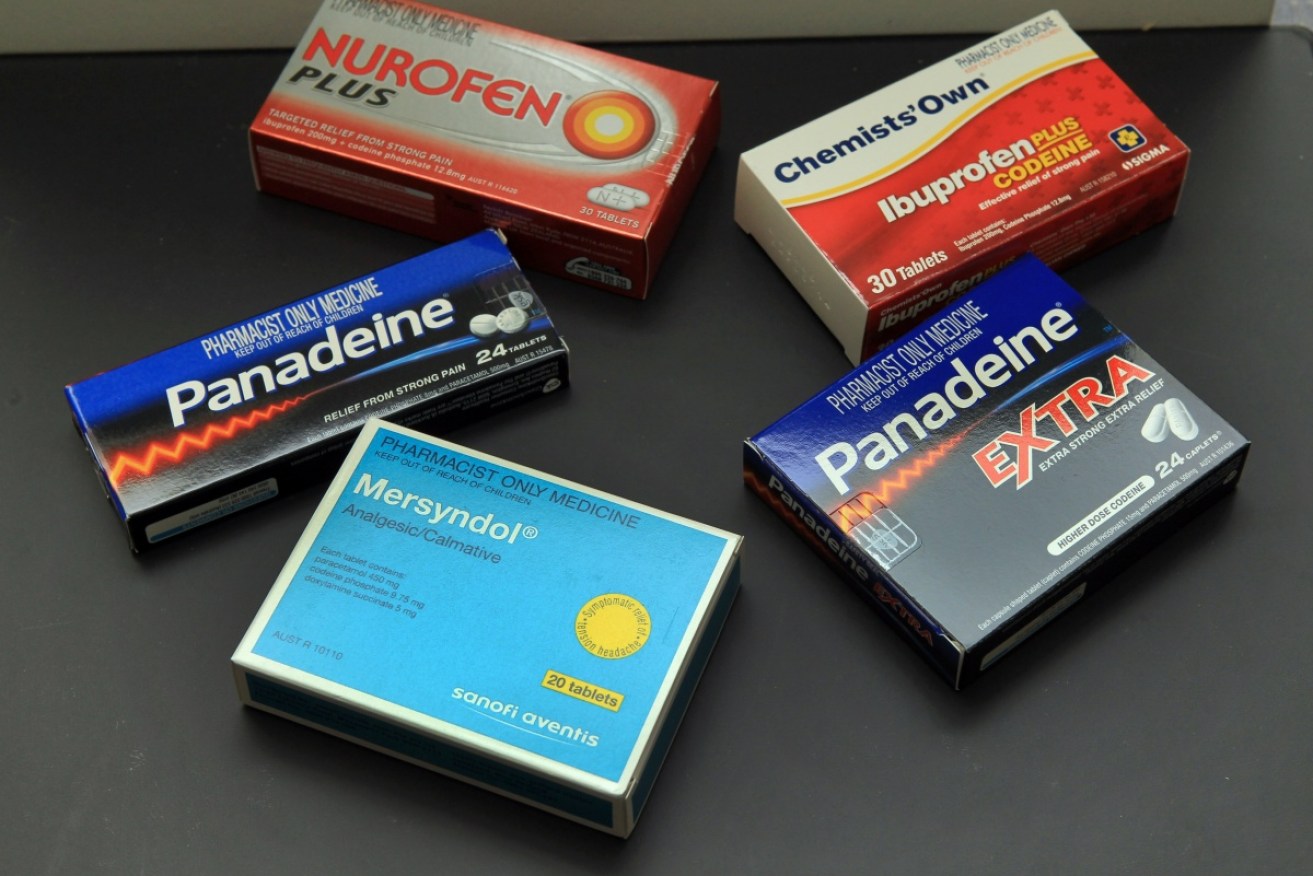Codeine ban sends sales of Nurofen, Panadol skyrocketing


The codeine ban has been pegged largely successful however some ongoing concerns have been raised. Photo: AAP
Nurofen and Panadol sales have surged in the month following the controversial ban on over-the-counter codeine, The New Daily can reveal.
The ban has also sent codeine prescription prices skyrocketing, in some cases by more than double.
Data exclusively supplied to The New Daily by Chemist Discount Centre reveals its customers bought 45 per cent more Nurofen (ibuprofen) products in February compared to the same month last year, while Panadol (paracetamol) sales increased by 24 per cent.
Purchases of ibuprofen-based Advil and diclofenac-based Voltaren, which are still available over the counter, also rose by 9 per cent and 1 per cent respectively compared to the previous February.
Several industry bodies had advised consumers to use paracetamol, ibuprofen and anti-inflammatory medications as alternatives to codeine in the lead-up to the ban.
While many industry figures welcomed the codeine ban, concerns have been raised about retail stocking issues and prescription price hikes.
As of February 1, products containing codeine – including Nurofen Plus, Panadeine, Codral and Demazin – were pulled from pharmacy shelves, instead requiring a doctor’s prescription.
This followed the Therapeutic Goods Administration’s move to regulate public access to the drug in a bid to curb overdoses, drug abuse and addiction.
It is estimated about 100 Australians die of an overdose from codeine-containing drugs every year.
Dr Bastian Seidel, president of the Royal Australian College of General Practitioners, said that while he supported the ban, some of the drugs still available over the counter – such as Voltaren and Nurofen – can be dangerous when taken regularly.
Codeine prices ‘more than double’
Chemist Warehouse Group pharmacist Mario Tascone told The New Daily that wholesale prices for codeine-based prescription medications had “more than doubled” in some cases.
“There has been a dramatic rise in price beyond pharmacies’ control,” he said.
“They want the same returns, even though they’re selling less.”

The New Daily understands the price of Nurofen Plus has skyrocketed in response to the codeine ban. Photo: AAP
Pharmacy Guild of Australia’s Greg Turnbull said pharmacists were doing their best to provide the most suitable medications at the best possible price.
“In some cases, wholesale prices of these medicines have risen sharply because of manufacturers responding to the foreshadowed lower volumes,” he said.
Some retailers had also run out of stock of codeine-based prescription medications, Mr Turnbull said.
“There have been some transitional issues for patients and for pharmacies and staff, but we expect these to be resolved over the coming weeks.”
Pain Australia chief Carol Bennett said the price hikes were “very concerning”.
“People with chronic pain are often very vulnerable and sometimes don’t work or have an income, so it can be a struggle to manage the pain with expensive treatments,” she said.
Despite earlier predictions fearing that the codeine ban may lead to doctors being inundated with prescription requests and crowding at hospital emergency rooms, GPs have reported it is “business as usual”.
Dr Seidel said GPs had not experienced an onslaught of requests for codeine prescriptions, in neither metro nor rural areas.
A St Vincent’s Hospital spokesman told The New Daily its head of pharmacology had seen no changes to numbers presenting at Kings Cross emergency rooms relating to codeine dependency.
Codeine ban creates awareness of painkiller side effects
Joeleen, a Queensland-based recovering codeine addict, said she believed the ban had raised awareness of the dangers of codeine.
At one point she had been taking up to 26 tablets a day.
“I thought I was taking codeine because I needed it, not because I was addicted,” she said.
“Recovery is a scary thing. But now, being on the other side, it is so much better than worrying about what life is going to be like without relying on painkillers.”
Pain Australia’s Ms Bennett said she hoped the ban would lead to an increase in non-medication approaches to long-term pain management including physiotherapy, psychology, massages and meditation.









